Learn how to cook Jerusalem artichokes or sunchokes, a funny-looking yet healthy and delicious root vegetable.
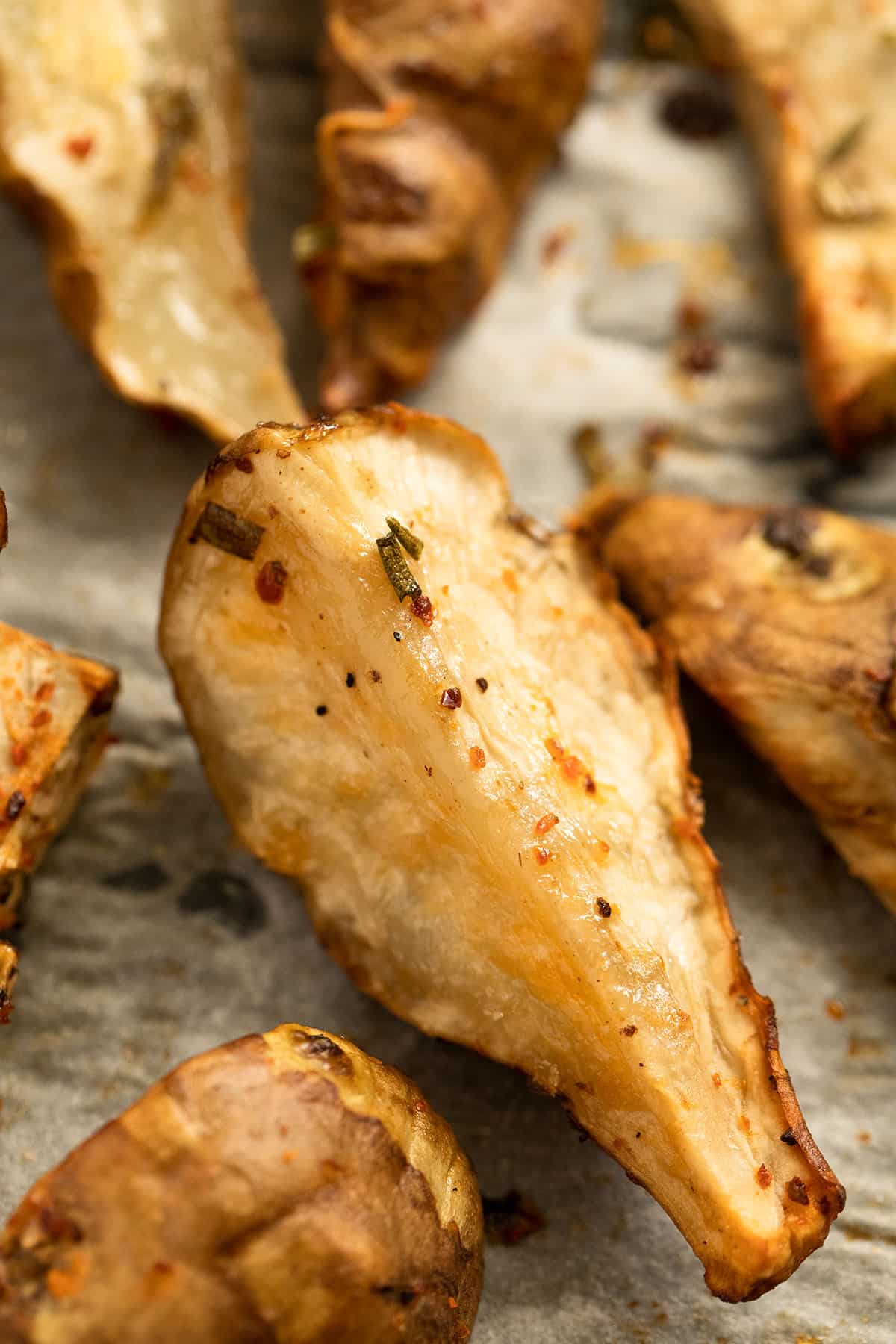
How to cook Jerusalem artichokes or sunchokes? There are many ways to do it: you can roast, boil, steam, or pan-fry them. All methods are easy, and the results are super delicious.
Make our delicious Jerusalem Artichoke Soup, too.
Jump to recipe
🌞What are Jerusalem artichokes?
Jerusalem artichokes, also known as sunchokes, sunroots, or topinambur, are root vegetables belonging to the same family as the sunflower. They are native to North America and found their way to Europe at the beginning of the 17th century.
The plant grows above ground, up to 3 meters, and has yellow flowers. But we want the edible tuber, not the overground growing plant. The tubers grow underground (like potatoes).
Despite their name, they have nothing to do with Jerusalem and are not artichokes either. Jerusalem is the mispronunciation of the Italian word for sunflower – girasole. Artichoke comes from the fact that they taste a bit like real globe artichokes.
Jerusalem artichokes are in season from late Autumn to early Spring, so now is the time to get them. You can find them at the local market or in a larger grocery store, take them home, and learn how to cook Jerusalem artichokes.
📋Recip ingredients
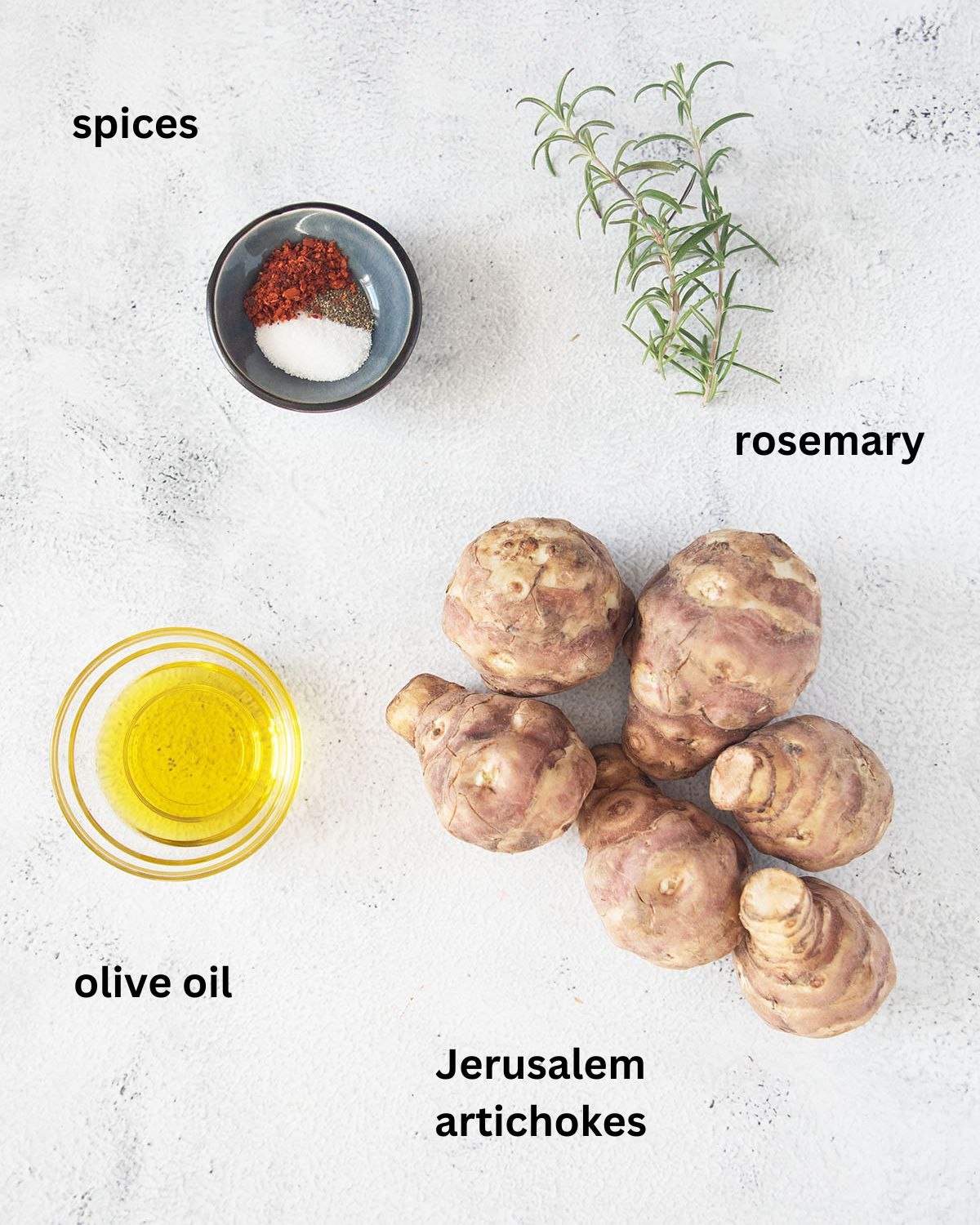
- Sunchokes or Jerusalem artichokes, practically as many as you want; just adjust the other ingredient amounts accordingly.
- Spices and herbs: Fine sea salt, ground black pepper, red pepper flakes, and rosemary (fresh or dried).
- Olive oil for coating the tubers before roasting.
See the recipe card for full information on ingredients and quantities.
👩🏻🍳How to roast Jerusalem artichokes?
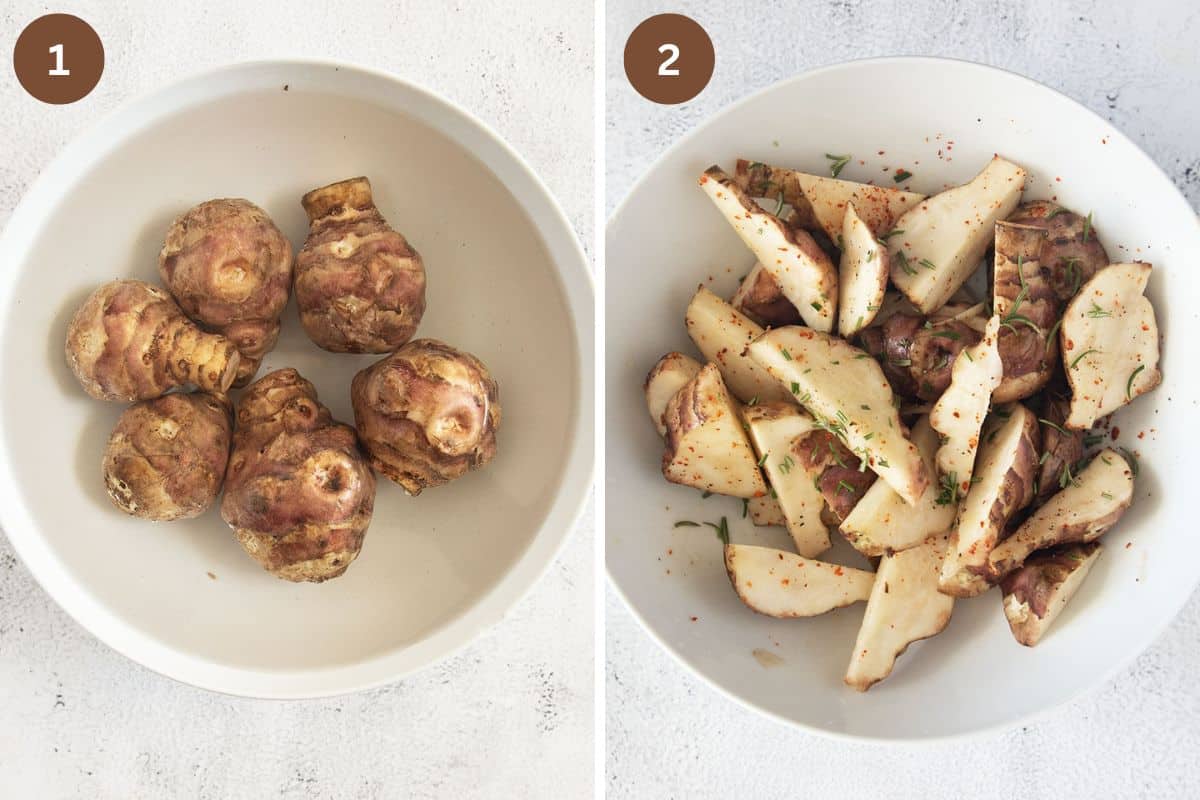
- Step #1: Clean the tubers very thoroughly; they might be covered in mud.
- Step #2: Cut them into slices and rub them with oil and spices.
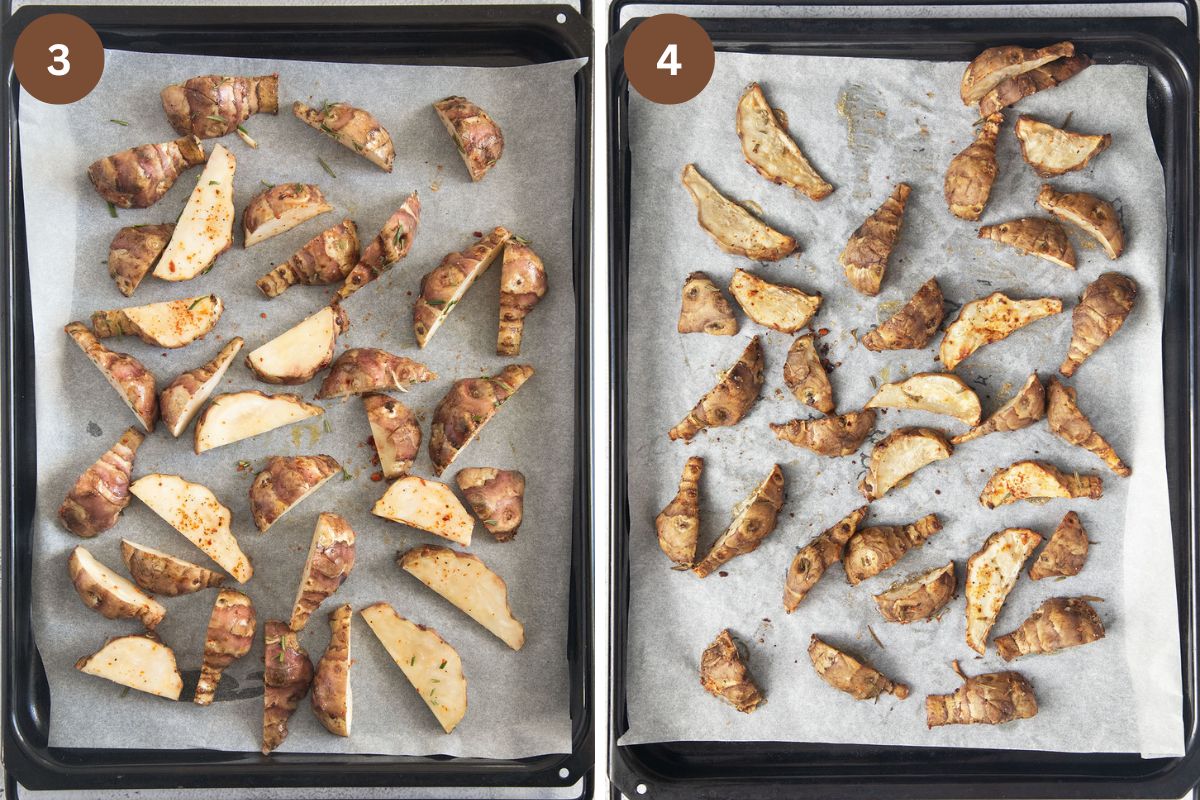
- Step #3: Place them on a baking sheet lined with parchment paper.
- Step #4: Roast Jerusalem artichokes in the preheated oven for 25-30 minutes until they are tender on the inside and slightly crispy around the edges.
🥄How else can I cook Jerusalem artichokes?
There are so many different ways you can enjoy Jerusalem artichokes. You can have them raw in salads; you can boil or steam them, fry them in the pan, or roast them in the oven. You can make soups or mash them.
- Raw: They are great, either grated or thinly sliced, in salads. However, keep in mind that raw Jerusalem artichokes cause flatulence.
- Soup: Make this delicious Jerusalem Artichoke Soup (Sunchoke Soup) with bacon, a spicy and creamy soup that really tastes incredible!
- Steam: Halve or quarter the clean tubers, place them in the steamer, and steam them until tender. It will take about 15 minutes, but check and allow a bit more time if they are not as tender as you want them to be.
- Boiled: Bring a large pot of water to a boil. Add some salt to the water and boil the chopped sunchokes until tender; this will take about 15 to 20 minutes, depending on their size. Check with a fork.
- Tip: If you want to use them for salads, 10 minutes of cooking time should be enough. If you want to mash them, cook them until soft.
- Pan-fried: Slice the tubers thinly. Cook them on medium heat in a mixture of butter and olive oil for about 10 minutes or until done and slightly crispy around the edges. If desired, add a few finely sliced cloves of garlic during the last couple of minutes of the cooking time (they should only have enough time to get golden). Stir often and sprinkle them with flaky sea salt and roughly ground black pepper before serving.
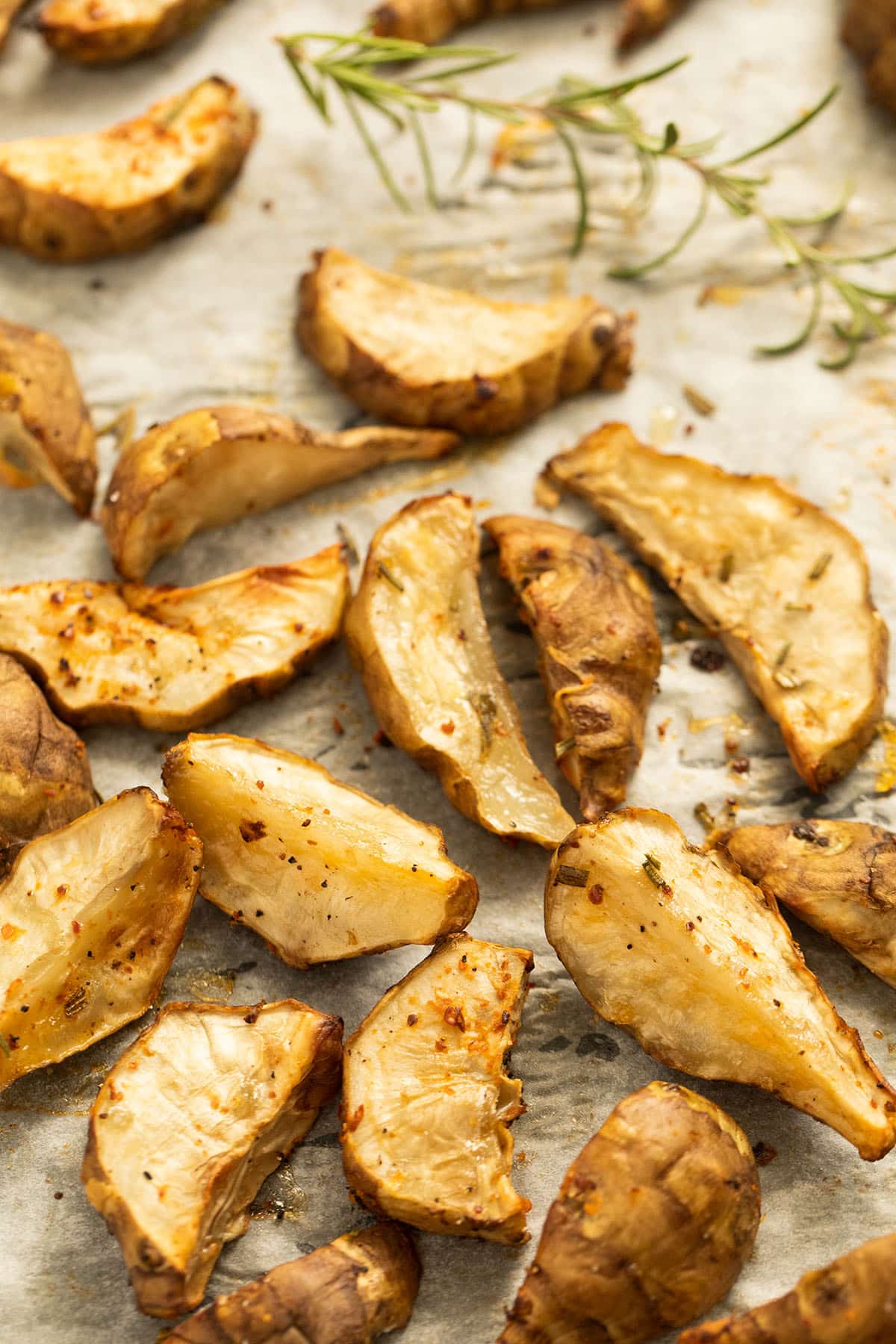
❗Expert Tips
You don’t have to peel them; the skin of Jerusalem artichokes is edible. But if you decide not to peel the sunchokes, you must clean them very well. The tubers are full of dirt and grit. The best way to clean them is by soaking them in cold water to loosen the dirt and then brushing them thoroughly with a vegetable brush under running water.
If you peel and cut them, immerse them immediately in a bowl of water mixed with lemon juice to prevent them from browning; the oxidation process starts immediately. If you intend to fry or roast them, dry them well with a paper towel.
❓Recipe FAQs
Keep them in the refrigerator’s vegetable drawer in a paper bag or wrapped in paper towels to absorb humidity. Depending on how long they have been sitting at the market, you can keep them for 6 to 8 days.
Once you’ve cleaned and cut them, they will only last 1 or 2 days.
The best about them regarding health is that they have no starchy carbohydrates and thus a lower glycemic index than potatoes, and they are not fattening.
Sunchoke produces quite a bit of flatulence; their unofficial name is “fartichokes.” They contain inulin, which can cause gas and bloating. Inulin sensitivity varies from one person to another, yet to avoid flatulence, it’s better to cook the tubers before eating them. Adding a splash of lemon juice to the boiling water might help against gas problems
I hope that this easy guide on how to cook Jerusalem artichokes will help you cook more with this healthy and delicious vegetable. Try more recipes using unusual veggies: Creamy Carrot and Swede Mash, Wild Garlic Pasta, Creamy Kohlrabi Soup with Potatoes, or learn How to Make Prepared Fresh Horseradish.
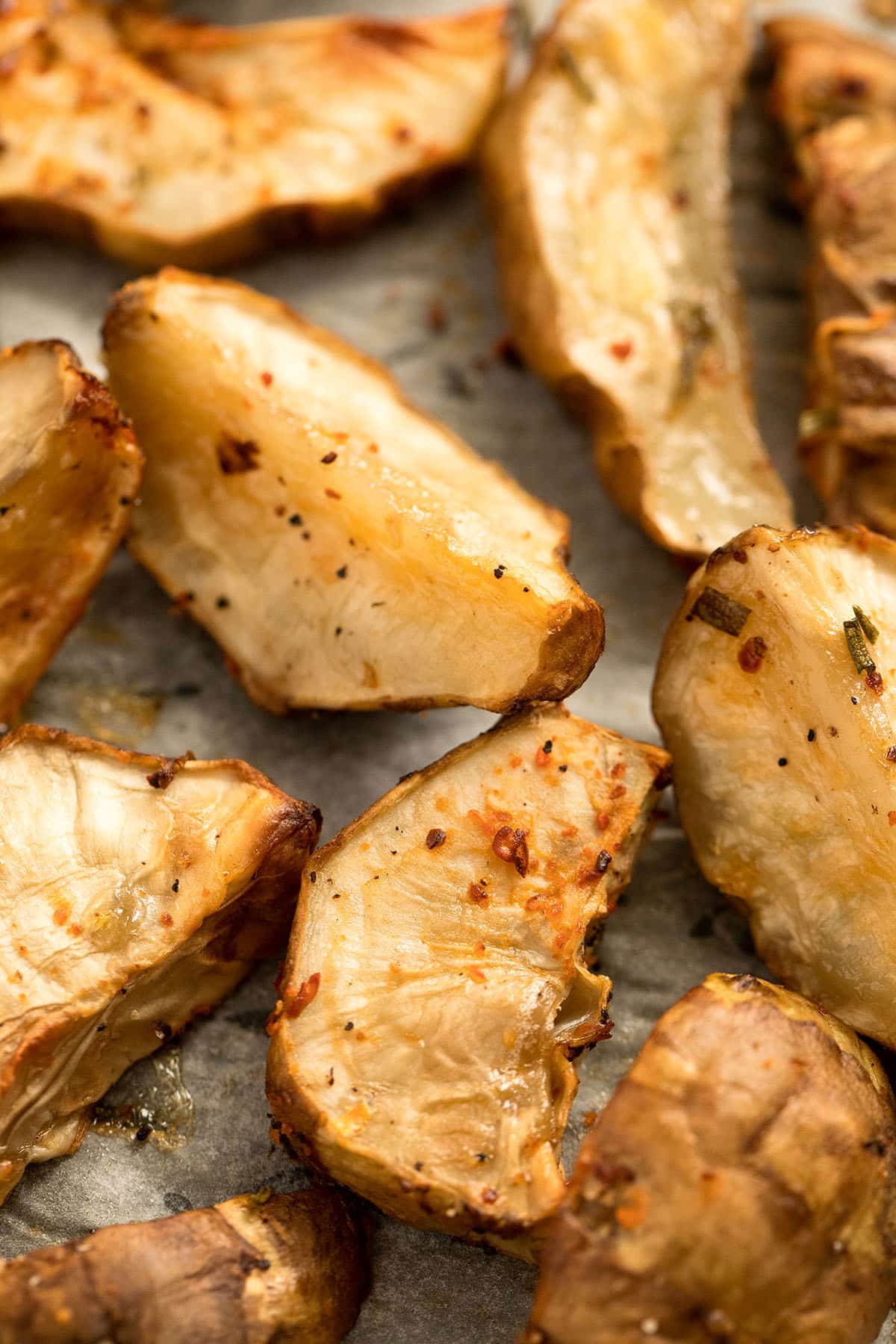
🍽️What to serve them with?
📖Recipe

How to Cook Jerusalem Artichokes (or Sunchokes)
Equipment
- Baking sheet
Ingredients
Roasted Jerusalem artichokes:
- 1 lb Jerusalem artichokes 450 g
- 2 tablespoons extra-virgin olive oil
- ½ teaspoon fine sea salt or Kosher salt
- ¼ teaspoon ground black pepper
- ½ teaspoon red pepper flakes
- 1 sprig rosemary or ½ teaspoon dried rosemary
Instructions
Roasted Jerusalem artichokes:
- Preheat the oven to 400°F/ 200°C while you soak the Jerusalem artichokes. Line a baking sheet with parchment paper.
- Soak Jerusalem artichokes (Note 1): Place them in a large bowl and cover them with cold water. Soak them for 20 minutes. Scrub them with a brush under running water, and ensure that all the dirt is removed.1 lb Jerusalem artichokes / 450 g
- Cut: Halve the smaller sunchokes and quarter the larger ones. Place them on the prepared baking sheet.
- Season: Sprinkle the tubers with olive oil, salt, pepper, red pepper flakes (or to taste), and rosemary. Toss well to coat the vegetables.2 tablespoons extra-virgin olive oil + ½ teaspoon fine sea salt + ¼ teaspoon ground black pepper + ½ teaspoon red pepper flakes + 1 sprig rosemary (or ½ teaspoon dried rosemary).
- Roast the Jerusalem artichokes for about 25-30 minutes until they are tender on the inside and slightly crispy around the edges.
- Serve immediately with a few lemon wedges on the side (optional but nice).
Raw:
- Clean them well. Grate or slice them very thinly and serve them on salads (Note 2).
Steamed:
- Halve or quarter the clean sunchokes. Place them in a steamer and steam them for 12-15 minutes or until tender. Check and allow a bit more time if they are not as tender as you want them to be.
Boiled:
- Bring a large pot of water to a boil. Add some salt to the water and boil the chopped vegetables until tender, about 15 to 20 minutes, depending on their size. Check with a fork (Note 3).
Pan-fried:
- Slice the Jerusalem artichokes thinly. Heat 1 tablespoon butter and 1 tablespoon olive oil in a large skillet. Cook the slices on medium heat for about 10 minutes or until done and slightly crispy around the edges.
- If desired, add a few finely sliced cloves of garlic during the last couple of minutes of the cooking time (they should only have enough time to get golden). Stir often and sprinkle them with flaky sea salt and roughly ground black pepper before serving.
Soup:
- Make this creamy and spicy Jerusalem Artichoke Soup.
Notes
- Soaking: It is an optional step, but it helps loosen the dirt and grit, thus making cleaning easier. If you don’t have time to soak the sunchokes, ensure that you wash them very well.
- Remember that raw Jerusalem artichokes cause even more flatulence than cooked ones.
- If you want to use them for salads, 10 minutes of cooking time should be enough. If you want to mash them, cook them until soft.



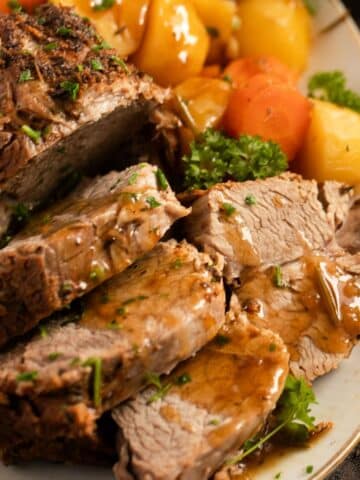



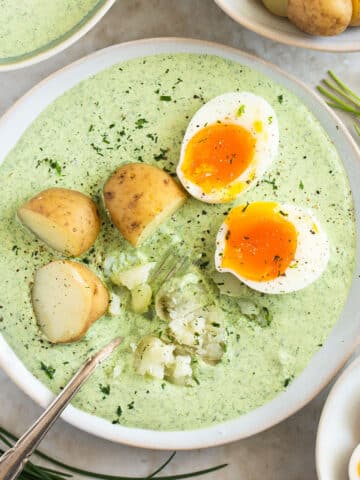



Leave a Reply